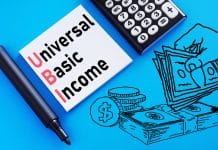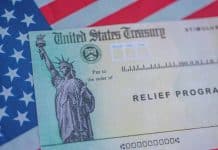
(FinancialHealth.net)- It isn’t easy to look forward to paying the bills. Having different companies taking your hard-earned money from you is not a pleasant experience. But you can’t just let the bills pile up.
With one bill after another coming, you’ll get into deeper trouble. Not only will you have to deal with late fees and penalties from the companies you owe money, but your financial standing will also be negatively affected. That’s something that you don’t want, especially if you want to apply for loans and other types of financing later on. Nonetheless, you’re in luck! With a couple of steps, we’re going to show you how to get all those bills done and out the way in a quick and organized manner. You might need some office supplies so pay close attention!
Create Your Own Bill-Paying Home Space
Having an organized approach when it comes to paying your bills is all about staying focused. Nothing affects concentration more than the place that you choose to do your work in. Choose a nice, quiet place to go through your bills. You may like the kitchen table or the bedroom or somewhere in your home office. The most important part of this is that you can stay focused and organized, so you can finish everything quickly and without error.
Getting Your Paper Bills In Order
Even though companies have chosen to go paperless when sending bills, some of them are still not that committed to saving a tree or two. So expect that you will have to organize paper bills. The best way to do this is to open them immediately after they arrive in the mail. Write the amount due and the payment deadline on each envelope. Due dates are especially important to pay close attention to because sometimes they change every month.
Proceed to examine all the details written in the paper bill. Use a highlighter to mark anything that doesn’t make sense to you. This can always be addressed when you contact the company later. Place all your unpaid bills in a folder or a separate plastic/cardboard drawer. Dispose of anything unimportant in the envelope and shred documents that have your personal information if you don’t have to keep them.
What to do with Electronic Bills
Staying organized when it comes to your online bills is important as well. What you need to do first is create a separate email address for electronic documents that are finance-related. This could include your tax documents, your bills, bank statements, and other essential items.
Be diligent in examining all your online bills and statements upon arrival. You must be just as detail-oriented in looking through them as you were with the paper bills. If there’s anything that doesn’t make sense, print it out, highlight the part that needs to be asked about, and put it in the same file as the other unpaid bills. You can also include a soft copy of the bill in a folder on your computer.
It’s important to have a good, easy-to-use system of labeling so that you can find all your documents without hassle. This can help you with a variety of other things that you might have to do, like applying for benefits or a loan.
Commit One Day a Week for Bill-Paying
“Bill Day” is not a fun day, but it has to happen sometime! Choose a day on the weekend when you can sit down and pay all the bills at ease. You should not spend more than 30 minutes doing this. For example, maybe you can do this every Saturday from 3:30 pm to 4:00 pm.
In that half-hour, you will need to go to your bill-paying station and take out all the bills to pay them one by one. Once a bill is paid, be sure to make a written note of it, including the amount paid and the date when payment was complete. Remember all those highlighted bills? Time to take them out and follow up with the companies about any concerns you might have.
~Here’s to your Financial Health!
Copyright 2021, FinancialHealth.net


















